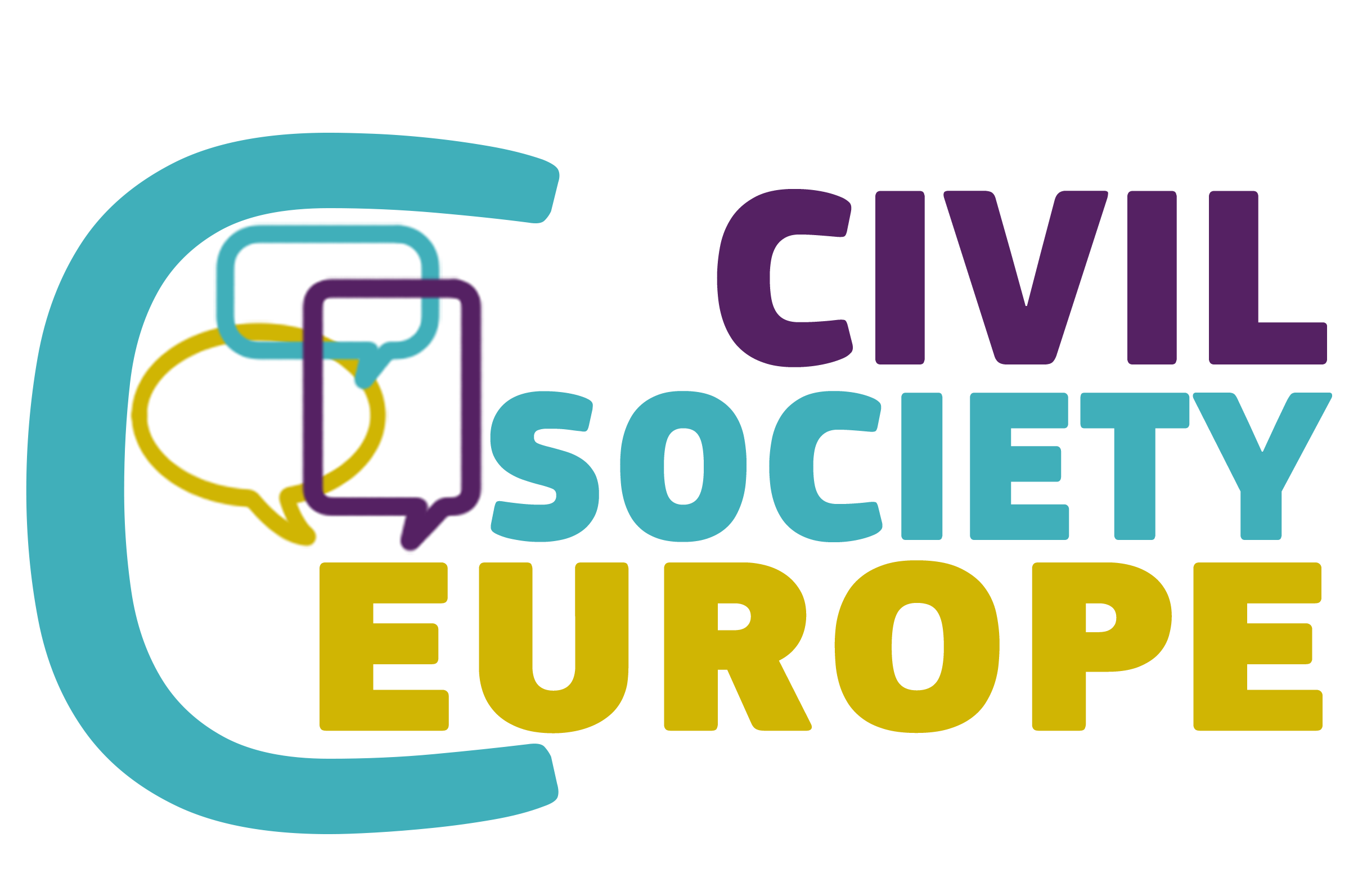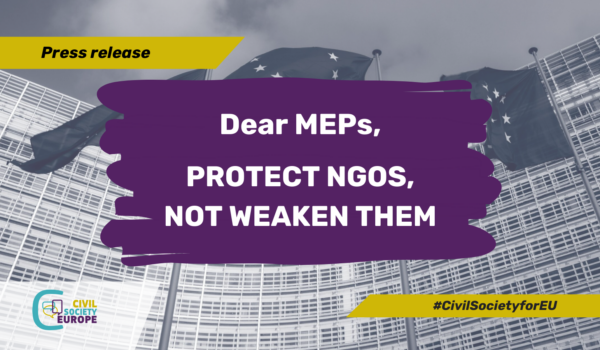The own-initiative report adopted today by the European Parliament (EP) on the transparency and accountability of non-governmental organisations (NGOs) funded from the EU budget (A9-0446/2023) is extremely concerning.
Civil Society Europe (CSE), as the coordination of civil society organisations (CSOs) at EU level, is committed to the greatest transparency and accountability as regards the implementation of the EU budget.
We cannot endorse a report that is largely based on assumptions or opinions and is not justified by any substantiated analysis by EU institutions and bodies or verified risks or malpractice. There is no evidence that NGOs are a problematic category as compared to other beneficiaries of the EU budget or that by funding them there is a further “danger of EU funds ultimately being used within corrupt circles and being subject to fraud and irregularities, foreign interference and entryism” (Point 13 in the report’s general remarks).
Any organisation that receives funding from the European Union falls under the same EU financial rules as any university, business, public authority and NGO! The same ex ante and ex post reporting obligations and controls apply.
While we agree that the European Commission should take further steps to make their databases more usable and include further information, this is a general concern to be tackled regardless of the beneficiary, and the responsibility for improvement lies with the EU institutions, not NGOs.
Contrary to what is stated in the report, business lobbyists do not have any additional reporting obligations within the EU Transparency Register than NGOs, but the contrary is true!
This report lacks evidence and facts that justify such generalisations on misuse of lack of monitoring, but it aims at shifting the responsibility of bribery scandals within the EP to the NGO sector.
The absurdity of the report is clear in the first two lines of the EPP press release: ‘Any organisation that receives funding from the European Union must disclose how they use those funds. This requirement must be extended to non-governmental organisations (NGOs), whose funding has so far has only been subject to limited scrutiny’. If all the organisations that receive funding from the EU must disclose how they use those funds, then EU-funded NGOs are already required to disclose how they use those funds, therefore there is nothing to be extended.
It is also ironic that MEP Pieper stated in the EPP press release that “it is unacceptable for a few black sheep to tarnish the reputation of all NGOs” while the very press release is illustrated with a bag full of cash, which evidently promotes the generalisation and stigmatisation the rapporteur supposedly wants to avoid and is forgetful of the fact that it was EP policy makers that were caught with a suitcase full of cash.
While this report had the potential to serve an important purpose in proposing positive measures to improve the allocation and transparency of the funding provided by the EU, instead it contributes to a dangerous narrative about NGOs. In a context where the space for civil society is shrinking, both around the world but also in many places across the EU, the report has the dangerous potential to weaken NGOs’ work in holding EU institutions accountable, defending EU values, human and social rights, fighting climate change, and corruption. It also raises doubts as to the European Parliament’s credibility in its role as budget controller.
In the end, we cannot avoid observing with great concern the turn against civic space and civil society organisations of the biggest political group in the European Parliament and of the party of Alcide De Gasperi, Robert Schuman and Konrad Adenauer, despite the group and party’s deep and historical ties to civil society organisations from the Christian-Democratic movement.
Access the press release in pdf here.


